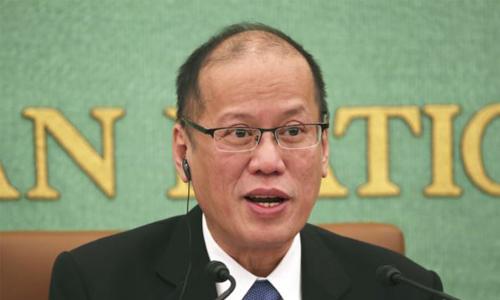Philippines' Aquino rejects permanent refugees from Australia
The Philippines will not accept any refugees sent by Australia if they are expected to live in the Southeast Asian nation permanently, President Benigno Aquino said Tuesday.
Aquino said he was "seriously considering" an Australian government proposal to accept some refugees but only if they were to transit in the Philippines before moving to another country. "If this proposed agreement is not transitory in nature... we feel we are not in a capacity at this point in time to afford permanent residency to these people," Aquino told reporters.
"Australia can recognise that we do have a significantly bigger population than they do. We have challenges to meeting the needs of our people right now. We would want to assist but there are limitations."
The Australian government said on October 9 it was in talks with the Philippines to send refugees to the nation of 100 million people, roughly one quarter of whom live in deep poverty. This came after a front-page report in Australia's The Daily Telegraph said both countries' foreign ministers had agreed to the Philippines accepting refugees for resettlement in exchange for Aus$150 million (US$109 million). The Australian government has not disclosed details of the proposal and Aquino did not elaborate on Tuesday.
However, Philippine foreign affairs spokesman Charles Jose told AFP the Australian government had proposed a permanent transfer of refugees. Under Australia's hardline policy to stop asylum-seeker boats reaching its shores, those arriving by sea are denied resettlement in Australia even if found to be genuine refugees.
They are sent to much-criticised camps on the Pacific nations of Nauru and Papua New Guinea, and in recent months Australia has been seeking new countries in which to resettle the refugees. Most recently it struck a deal with Cambodia to accept refugees in exchange for millions of dollars in aid.
However, only four refugees have taken up the offer to resettle in impoverished Cambodia, with that deal strongly criticised by rights groups.
Photograph:AP
Related Posts

